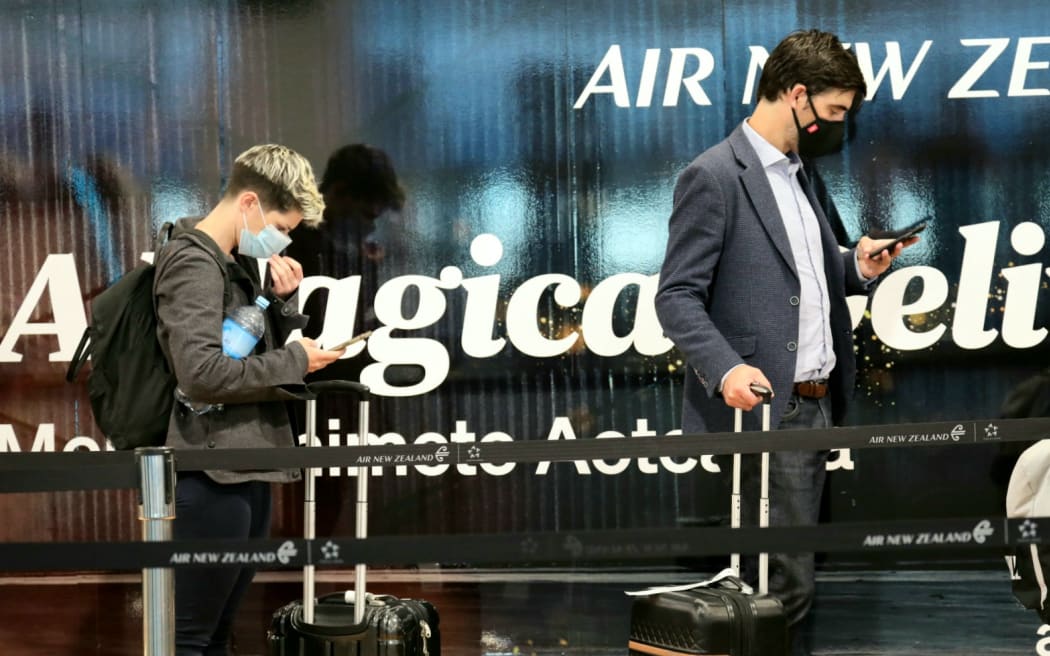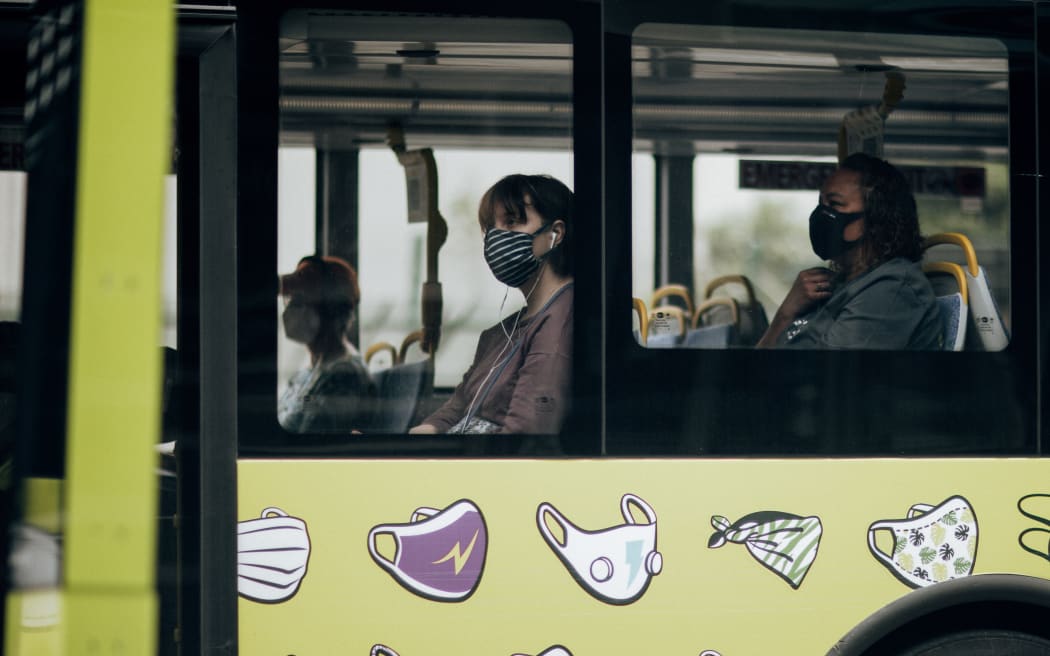 Our Covid response has changed, but it shouldn’t be abandoned. Photo: RNZ/Adobe Stock/123RF
Our Covid response has changed, but it shouldn’t be abandoned. Photo: RNZ/Adobe Stock/123RF
Analysis – New Zealand’s decision to end most Covid health measures is welcome, as it removes controls that are in most cases no longer essential. But the new Covid management phase looks like a short-term reaction to declining case numbers rather than a longer-term strategy.
New Zealand has achieved one of the best health outcomes of any country by taking decisive action from the start of the pandemic.
We argue now is the time to build on that success with a strong, science-informed strategy to get us through the next pandemic stages and lift our resilience against future emerging infectious disease threats.
Such a strategy would need to provide a robust plan for managing the two most likely pandemic scenarios – new variants and endemic disease.
The most probable scenario is that SARS-CoV-2, the virus that causes Covid-19, will continue to evolve new variants that evade immunity from prior infection or vaccination, triggering new waves. Any new variant could be more or less severe than Omicron.
The government has previously identified the need for a strategy to manage this scenario, which would require rapid risk assessment of new threats and increased controls if needed.
Covid is also likely to eventually become a more stable and predictable endemic disease, perhaps somewhat like seasonal influenza but with more severe consequences that are still emerging.
Endemic does not necessarily mean mild. The world’s biggest infectious disease killers, including tuberculosis, HIV/AIDS and malaria, are all endemic. A long-term strategy should aim to minimise health burdens (serious illness, death and long-term disability) and health inequities.
Unfortunately, New Zealand’s new approach does not provide a robust response to either of these scenarios.
 We need to recognise what we learned from our pandemic response. Photo: Sanka Vidanagama/NurPhoto
We need to recognise what we learned from our pandemic response. Photo: Sanka Vidanagama/NurPhotoDefences against likely pandemic threats
New Zealand already has well-established tools for assessing and communicating the risk associated with many other hazards such as fires and storms. Why not do the same for Covid and potentially other serious respiratory infections?
We propose five changes to fill gaps in the new Covid management approach while at the same time minimising disruptions.
1. Develop an updated alert level system for Covid variants
The government could use this relatively low point in the number of Covid cases to develop a robust framework to provide a simple way for describing the level of risk and a proportionate response at each level.
Before Covid, New Zealand’s pandemic plan was based on mitigation. This meant accepting pandemics would wash over the country and the best we could do was to minimise healthcare system overload. Now we know we can potentially stop any respiratory disease pandemic.
 Photo: RNZ / Nick Monro
Photo: RNZ / Nick Monro
2. Reinforce the critical importance of borders for biosecurity
We need an evidence-informed strategy for our borders to manage potentially more dangerous variants and other future pandemics.
The government has now removed vaccination requirements and mandated testing for visitors. As case numbers fall, arriving travellers will likely become an increasingly important source of new infections.
The end of routine testing on arrival limits our ability to collect viral samples for whole genome sequencing and leaves a gap in our surveillance system. Long-term benefits of improved border control would include a reduced risk of importing other outbreak-prone diseases such as measles or more serious, bioengineered pandemics.
3. Reinforce self-isolation as a key infection control tool
Fortunately, the government has retained mandatory isolation for people who test positive for Covid. It is fundamental to disease control that sick people stay home. Keeping isolation to a minimum of seven days is also wise, as even then about a quarter of people are still infectious.
Nevertheless, adding a test-to-release requirement would improve the effectiveness of this strategy and reduce the isolation period to five days for some.
Making these measures work well requires a great deal more public education and support, particularly around health, social and work support. This could be a major legacy benefit of this pandemic, particularly if it also helps to reduce the spread of other respiratory diseases such as influenza.
 Photo: RNZ / Dom Thomas
Photo: RNZ / Dom Thomas4. Establish requirements for masks and ventilation
Masks still have to be worn in healthcare and aged-care settings. Masks work best in such high-risk environments when everyone is using them. But we need systematic criteria to identify other confined, crowded and close-contact environments with a high risk of infection.
On that basis, public transport would be an important environment for universal mask use and ventilation improvements, particularly during winter. An evidence-based mask and ventilation policy would be another major legacy benefit of the current pandemic.
5. Establish vaccination as the norm for healthcare and essential services
The government has now removed all vaccine mandates. However, there are several reasons why healthcare and other essential workers should be vaccinated against Covid and other serious infectious diseases. It should be a basic occupational health and safety necessity, just like some groups are required to wear protective clothing.
One legacy benefit of the pandemic should be a wider discussion about how to appropriately establish vaccination as a requirement for key occupational groups.
The inconvenient truth is that the pandemic has not gone away and future pandemics remain a risk. Even if Covid becomes a more predictable endemic disease, we still need to minimise serious illness, particularly for the most vulnerable.

Leave A Comment